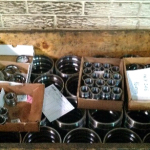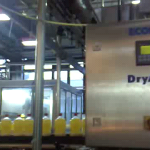GLOBAL CHEMICAL LEASING AWARD
EDITION 2021
The Award aims to acknowledge best practices, innovative approachesand ideas related to Chemical Leasing and similar performance-basedbusiness models for sustainable chemicals management. The Awardceremony will take place in Vienna, Austria on the 15 Sept. from 3pm to 4:45pm (CET) . It will be part of the Fifth Meeting of the InternationalConference on Chemicals Management (ICCM5).

GLOBAL CHEMICAL LEASING AWARD 2021
We are happy to announce the fifth Global Chemical Leasing Award!
The Award aims to acknowledge best practices, innovative approaches and ideas related to Chemical Leasing and similar performance-based business models for sustainable chemicals management. The Award ceremony will take place in Vienna, Austria on the 15 Sept. from 3pm to 4:45pm (CET) . It will be part of the Fifth Meeting of the International Conference on Chemicals Management (ICCM5).
Companies and individuals are invited to submit entries in five categories: Three main categories (Case studies, Innovation, Research) and two special awards (Women-led initiatives, Start-ups). In addition, a special jury recognition “Chemical Leasing Champions” will be given to companies that demonstrate a long-standing commitment to Chemical Leasing. Detailed information about each award category and application requirements are provided below.
The Award is co-organized by UNIDO, the governments of Austria, Germany and Switzerland, and co-sponsored by the European Association of Chemical Distributors.
The application period is open until 15 December 2020.
|
Applications |
Award |
|---|
| Time left |
15.12
2020 |
Time left |
15.9
2021 |
|---|---|---|---|
|
EXPIRED |
|
Why Apply?
Here are some reasons to apply for the award:
- Recognition from the international community. The award gives companies, researchers, academicians, and creative individuals an excellent opportunity to present themselves and what they stand for to a wider audience.
- PR. Best practices will be picked up by media and social networks, inspiring more companies and individuals to adopt innovative solutions.
- The Award provides a platform for knowledge exchange and discussion on topics related to performance-based business models and sustainable chemical management
- Presentation of creative ideas, best practices and innovative solutions to reduce environmental impact, boost profits and create social benefits.
- Participating at the award is a chance to be evaluated by the international jury, including UNIDO. It will help to convince customers, partners and public society of your trustworthiness.
- Self-assessment. Application provides a great opportunity to assess your own organization/target processes and to prepare an action plan for further improvement of the organizational performance.
- Monetary prize for award winners (5000 $ and covering flight tickets for Gold, Silver and Bronze).
The Award results will be announced on the websites and in the social media of UNIDO, co-organizers and supporters. Winning case studies, innovations and research work, as well as interviews with winners, will be presented on the www.chemicalleasing.com website.
Who Can Apply?
Organisations, companies, research institutions and individuals are encouraged to apply.
- The case study nomination is offered to users and suppliers of chemicals who implement/implemented the Chemical Leasing (or a model which corresponds to the definition of Chemical Leasing) on a plant level. The “Users” are companies that use chemicals in their processes. The “Supplier” can be a manufacturer of chemicals and/or a distributor/trader of chemicals. Prizes in this category will be awarded for users and suppliers of chemicals separately.
- The innovation nomination is open to companies and organizations as well as to start-ups, and individuals who e.g. implemented business plans. An applicant should present a case study with technical solutions that have the (already demonstrated) potential to define a new state of the art for a particular use of chemicals.
- The research nomination is open to researchers and scientists, but also to R&D departments of companies and individual inventors (e.g. patent owners). The topics of research and development activities can be different, but there should be a clear link with Chemical Leasing.
How to Apply?
Performance-Based Business
The migration to a service-based economy is leading to a fundamental shift in industries toward business models in which the service component of products is becoming dominant based on the value they provide to customers.
Lets take an example of the chemicals business: The main interest of chemical users is not to buy and possess chemicals products. They are interested in the best solutions for their process or application. Therefore, chemical users are paying attention on the utility of chemicals, and are attracted by services that support their businesses. This strict service orientation leads to a new logic that puts the utility / function provided by a chemical into the centre of the buying process. Following this shift, chemicals suppliers need to change a way of doing business and offer sophisticated solutions that will support their customers’ chemical operations and profitability.
Performance based business model (also called “performance-based contracting”) responds to this demand: the customer pays for the utility of the product and not for its quantity or volume.
Performance based business models related to chemicals can be called and branded in companies differently, not just as Chemical Leasing even if being identical or similar to this model.
Chemical Leasing is a performance-based business model for sustainable chemicals management. Chemical Leasing aims at a more efficient use of chemicals in the production process by redefining the business relationship between the chemical user and the supplier. In the Chemical Leasing model, the supplier does not sell quantities. The supplier sells the function of the chemical. The model aligns the interests and motivations of partners, and helps achieve a win-win situation for them and the environment. The life cycle of the chemicals is prolonged, waste is minimized and resources are used efficiently. This contributes to the achievement of circular-economy goals.
Example: A producer of automotive parts needs solvents to clean and degrease them. The company pays the chemical supplier for the functions performed by the chemical, that is, the cleaned metal parts. The company does not pay according to the amount of solvent used.
Chemical Leasing model overview:



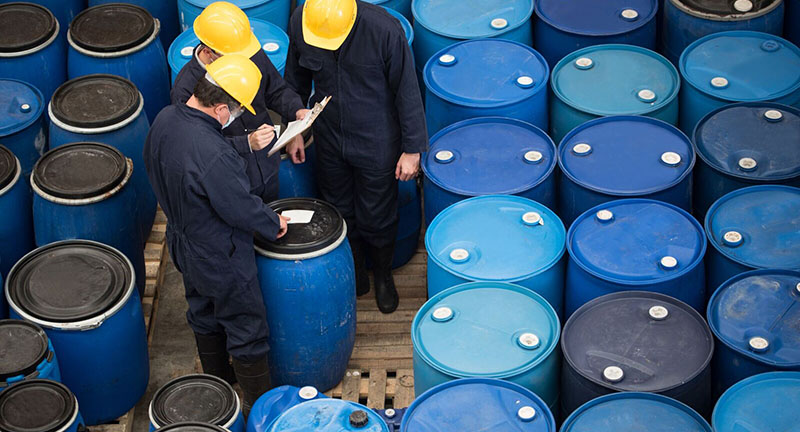





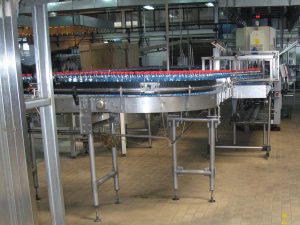
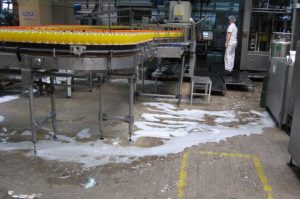
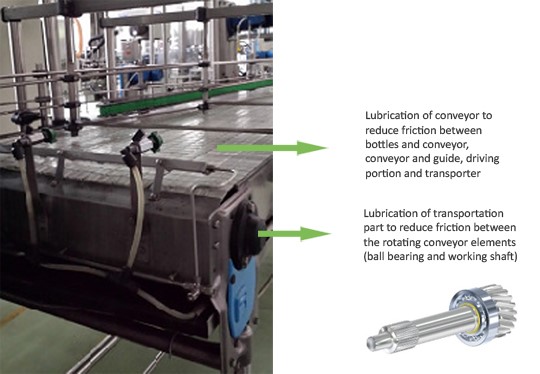 Picture 1: Conveyor lubrication
Picture 1: Conveyor lubrication

